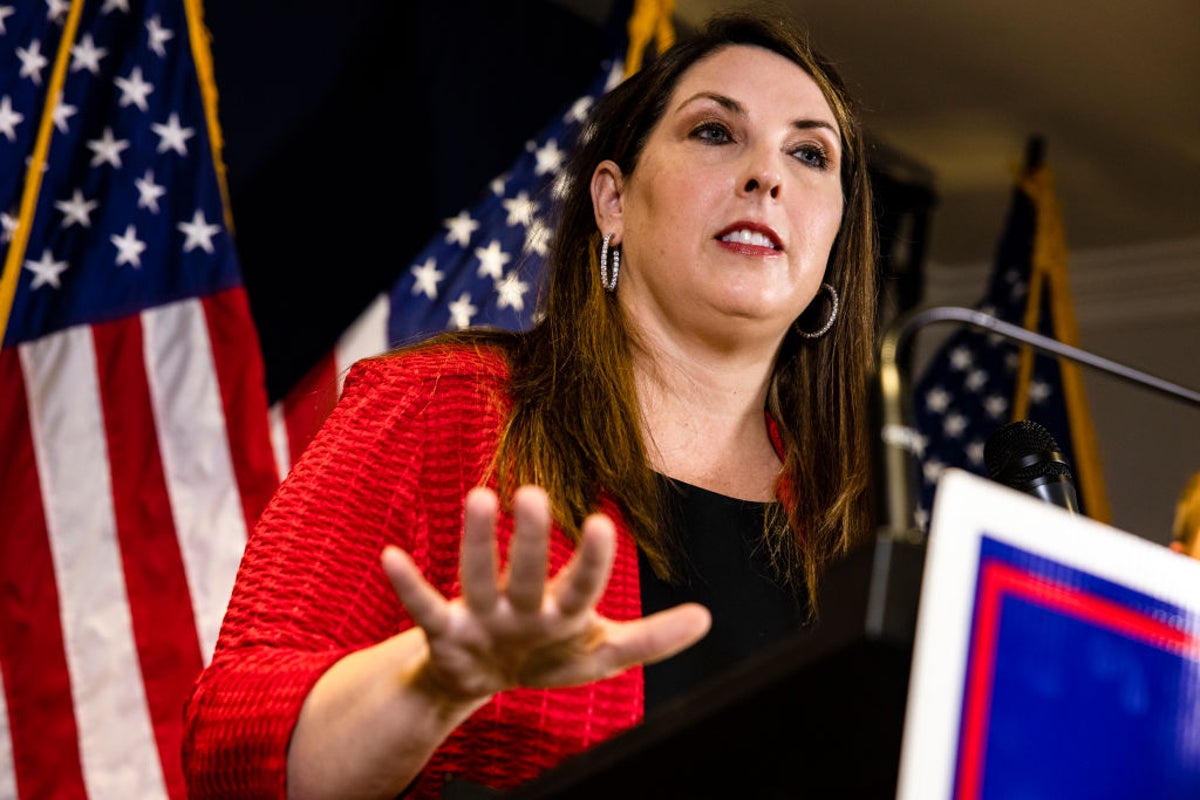
GOP chairwoman Ronna McDaniel made clear on Sunday that her party may enforce a planned “loyalty pledge” meant to ensure that all Republican candidates for president eventually end up supporting the party’s nominee.
It was a clear warning shot at Donald Trump, who many have privately fretted would not support any Republican who successfuly broke his hold on the GOP and claimed the party’s 2024 nomination for themselves. Some had speculated that Mr Trump would form his own political party if Republicans rejected his third bid for the presidency.
Ms McDaniel made clear her position on CNN’s State of the Union, explaining that she expected every prominent Republican candidate to sign the pledge, which the party plans to make a requirement for participation in GOP debates during the 2024 cycle. That election cycle is set to kick off in just a few short months with a GOP debate in Milwaukee, Wisconsin — only a short reprieve from campaigning for many politics-weary Americans.
“We haven’t put the criteria [for attending a debate] out, but I expect a pledge will be part of it,” she told CNN’s Dana Bash, adding: “I think they're all going to sign it.”
Though the move represents a firm demand for party loyalty from the top, it isn’t clear exactly what means the GOP as an organisation would have to enforce the support of debate participants should they choose to end their campaigns.
Sources close to Donald Trump have given no public indication yet how the former president will respond to the loyalty pledge, while the Trump team continues to focus much of its time on reinforcing the idea that the former president remains the dominant candidate in the prospective 2024 field, even against potential rivals like Florida’s Ron DeSantis.
“President Trump is the undisputed leader of the Republican Party and will be the nominee," spokesperson Steven Cheung recently told The Associated Press. “There is nobody who can outmatch President Trump's energy or the enthusiasm he receives from Americans of all backgrounds.”
Polling has shown that Mr Trump would face a serious challenge for the nomination, and could even lose, in a head-to-head matchup against Florida governor Ron DeSantis, who is considered a rising star in the party. But the likelihood of those being the only two candidates on the ballot once primaries and caucuses begin is slim, given that others are thought to be preparing their own bids for the nomination, like former UN Ambassador Nikki Haley who announced her candidacy this month.
The entrance of further alternatives to the former president into the race is thought to be a boon to Mr Trump and a serious problem for those who wish him to lose his grip on the party, who risk fragmenting the opposition to him behind many different candidates.
The GOP previously told The Associatet Press earlier this month that it was “imperative” for the entire party to come together after the end of the 2024 primary to ensure that their candidate had enough strength to take on Joe Biden.







